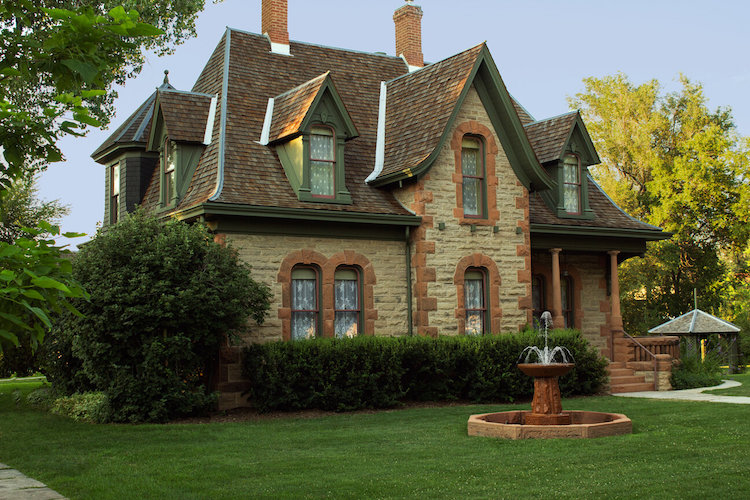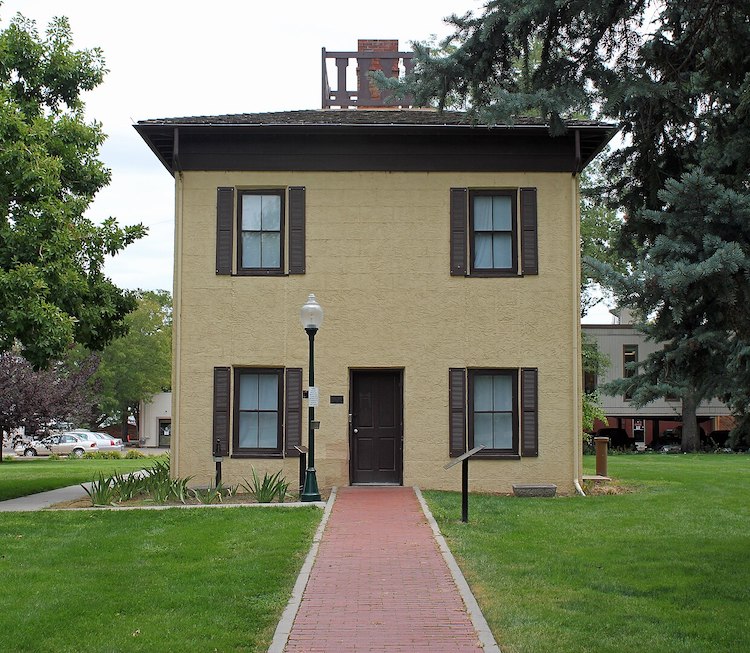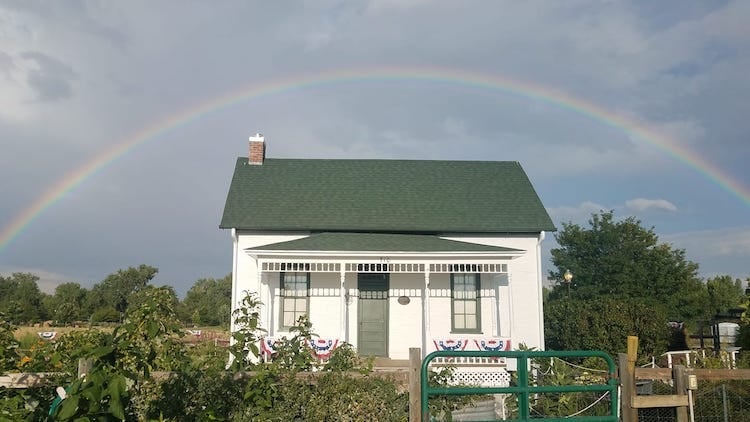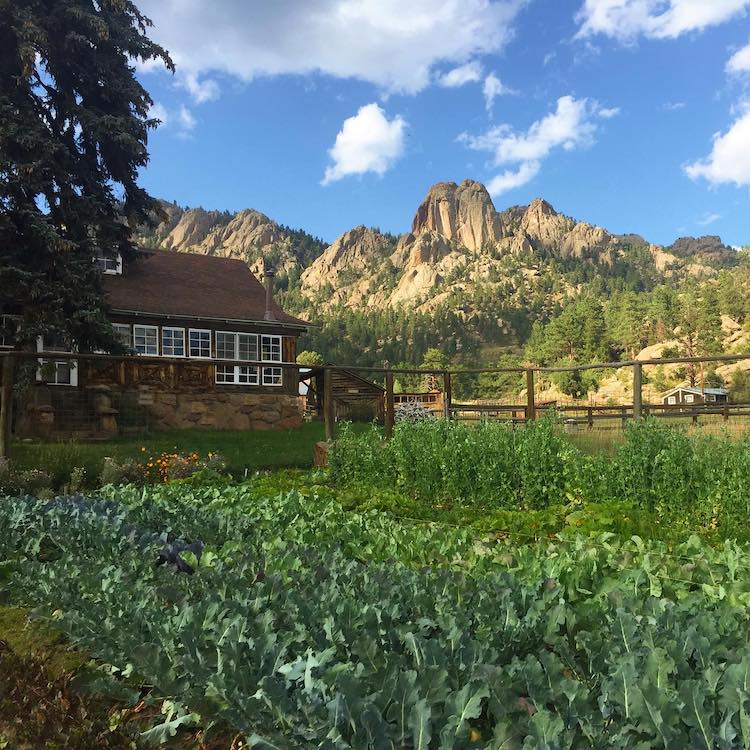From Fort Collins to Greeley, and even over to Estes Park, Northern Colorado has a rich and diverse history that has been well-preserved in its many historic homes — something we’re very passionate about, as a real estate company. From the grandiose Victorian-era mansions to the humble homesteads of early settlers, these historic houses offer visitors a glimpse into the past and a chance to learn about the people and events that shaped the region.
Whether you’re a history buff or simply looking for an interesting day trip, there are plenty of notable historic houses in Northern Colorado you can tour. We’re taking a closer look at some of the most fascinating and unique historic homes in the area, and exploring what makes them such important parts of Colorado’s heritage.
The Avery House
328 West Mountain Avenue, Fort Collins

Photo Courtesy of the Poudre Landmarks Foundation
Franklin Avery was the man behind Fort Collins’ wide streets, he founded First National Bank, and he was instrumental in developing the water projects that enabled agriculture to boom throughout Northern Colorado. The 1879 Avery House was originally built for $3,000 in 1879 using sandstone from local quarries. Franklin Avery and his wife Sara raised their children in the house and added several additions throughout the years. Today, the house, the Margareth Merrill Memorial Gazebo, the fountain, and the carriage house are all part of the Avery House Historic District listed in the National Register of Historic Places, and it’s all maintained by Poudre Landmarks Foundation. Visitors can take guided tours of the house and see original furnishings, decorations, and artifacts that give insight into what life was like for the Averys and their contemporaries. To learn about house tours and weekly open houses, click here.
1883 Water Works
2005 North Overland Trail, Fort Collins
Maintained by Poudre Landmarks Foundation, the 1883 Water Works was Fort Collins’ first public works project. Today, the landmark consists of more than 20 acres, four buildings, two ditches, vintage apple trees and more, but the main attraction is the original Gothic Revival pump house, which received water from the supply canal and the Cache La Poudre River. It is an excellent example of late nineteenth-century industrial architecture, few of which remain to this day. You can tour the Water Works on select Saturdays from May through October. No reservations are required and admission is free — but donations are appreciated!
Meeker Home Museum

Photo Courtesy of Jeffrey Beall, CC BY-SA 3.0, via Wikimedia Commons
Established in 1929, the Meeker Home Museum was the very first museum in Greeley. The museum is housed in the 1870 home of Greeley’s founding family, Nathan Cook Meeker, his wife Arvilla, and their daughters Mary, Rozene, and Josephine. This two-story adobe brick home has been meticulously restored to its original state, and visitors can explore the rooms and see original furnishings used by the Meeker family. Some of the prized historical treasures within the museum include a 10-foot tall diamond dust mirror, a tall case clock, and Meeker’s cherrywood desk. Visitors can also walk the grounds of the museum, where interpretive panels portray historical facts, maps, and images about the town’s history, Horace Greeley, and the Meeker family. The Meeker Home Museum is a testament to the vision and determination of Nathan Cook Meeker, whose dream of a Utopian farming community came to fruition with the establishment of Greeley in 1870.
White-Plumb Farm Learning Center
White-Plumb Farm Learning Center is a unique and historically significant property in the heart of Greeley. Listed on the National Register of Historic Places, the farm has been run by the same family for over 100 years before it was donated to the City of Greeley Museums. The property was established in 1881 by Civil War Veteran Charles White as a tree claim, utilizing a flood irrigation system to support the agriculture fields. The family raised various farm animals and crops such as alfalfa, sugar beets, seed potatoes, beans, and vegetables. White-Plumb Farm is a Colorado Centennial Farm, and the original family home was designed by Bessie Smith, Greeley’s first female architect. In 1983, the descendants of Charles White donated 2.5 acres of the original tree claim to the City of Greeley for historical, cultural, and museum use. Today, the property is used as a public park and for rentals, and visitors can learn about the history and legacy of the White family and their farm.
Milner/Schwarz Farmhouse
710 South Railroad Avenue, Loveland

Photo Courtesy of Jennifer McDermid via Loveland Historical Society
The Milner/Schwarz Farmhouse is a historic gem in Loveland. The farmhouse was built in 1904 by Loveland pioneers W.D. and Mary Milner and is an excellent example of turn-of-the-century American architecture — particularly, the I-House design with the two-room wide and one-room deep plan with a central passage. The farmhouse has undergone renovations to restore it to its original splendor and is now listed on the National Register of Historic Places. Today, visitors can tour the property and step back in time to experience what life was like on a working farm in the early 1900s. The farmhouse is decorated with period furnishings and household items, giving visitors a glimpse into the daily life of the Milner family. The farmhouse is also surrounded by several outbuildings, including a barn, a chicken coop, and a smokehouse, providing visitors with a sense of the agricultural practices of the time. Plus, the Loveland Historical Society operates popular community gardens on site, which gardeners can access from dawn to dusk through October. The museum is open certain hours during the summer months.
Centennial Village Museum
Part of Island Grove Regional Park just north of downtown Greeley, Centennial Village Museum is a living history experience. The seasonal museum features costumed interpreters, heritage farm animals, 8 acres of beautifully landscaped grounds, and more than 35 historical buildings, including some of the oldest structures in Weld County. Opened in 1976, the museum serves to preserve and interpret American western heritage in our region spanning the last 150 years, and it’s home to some of Weld County’s oldest structures. Guests can visit seasonally to experience things like printing at the High Plains Post historic print shop, blacksmithing at the forge, rope-making, chuckwagon-style cooking, scrub board laundry techniques, corn shucking and grinding, food preparation on cast iron stoves and more. The museum is open on Fridays and Saturdays from late May through early September!
MacGregor Museum
180 MacGregor Lane, Estes Park

Photo Courtesy of Morgan Morris via MacGregor Ranch
Located just outside of Estes Park, the MacGregor Ranch is a living history museum that showcases life on a working cattle ranch in the early 20th century. The ranch was homesteaded in the 1870s by the MacGregor family, and it has been operated continuously as a working ranch ever since. The museum offers visitors a chance to explore the historic buildings and learn about the ranch’s rich history. Visitors can tour the original ranch house, built in the 1870s, and view artifacts and exhibits that depict ranch life in the early days. The museum also features an extensive collection of horse-drawn carriages, wagons, and sleighs, as well as antique farm equipment and tools. The ranch is still a working cattle and hay operation, and visitors can witness modern-day ranching practices and interact with the livestock, starting on Memorial Day each year.
Looking for a Historic Home of Your Own?
We can help with that too! Contact us to get connected with one of our brokers, who can help you with your home search in Northern Colorado.
Comments